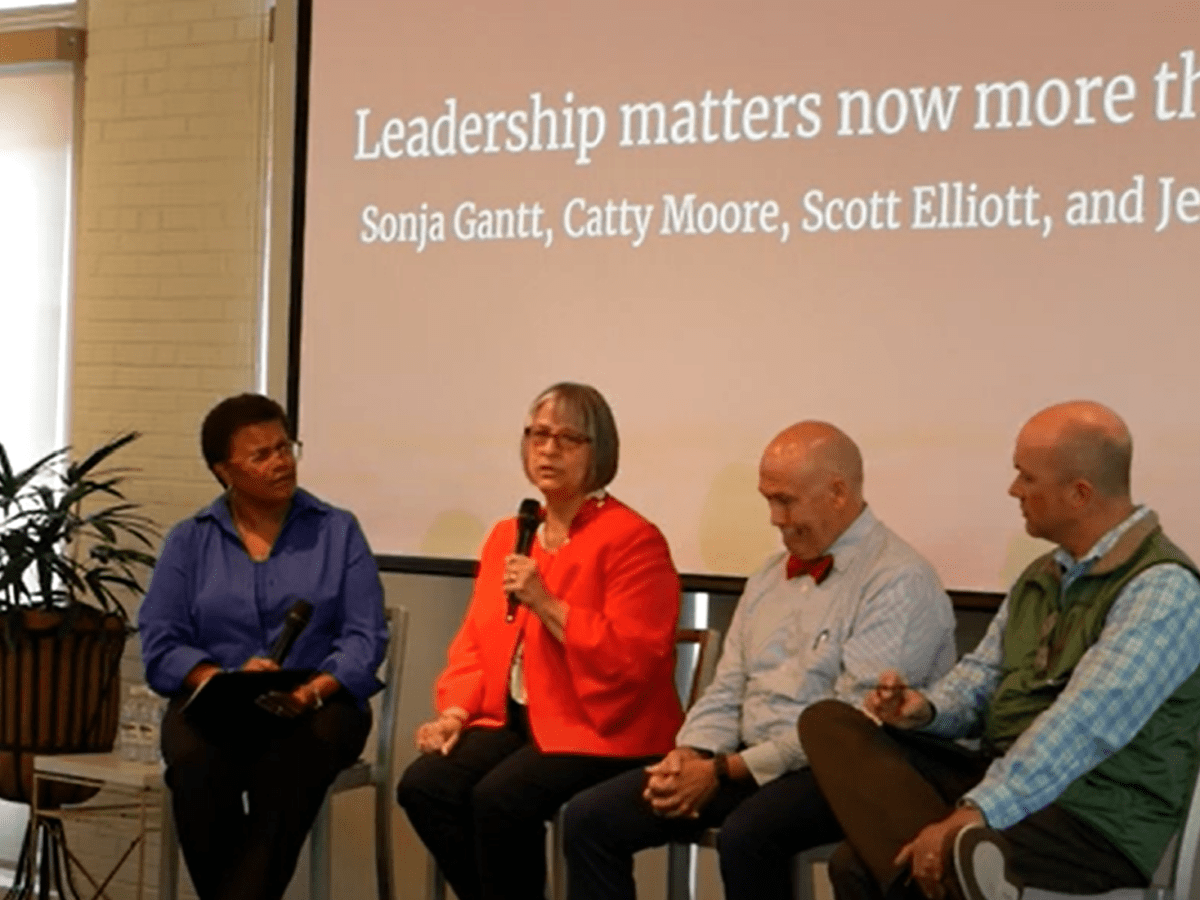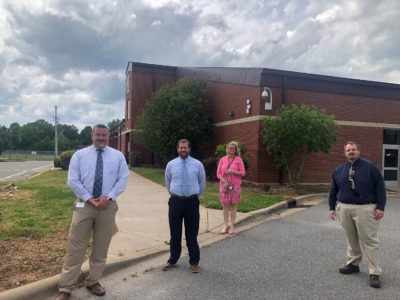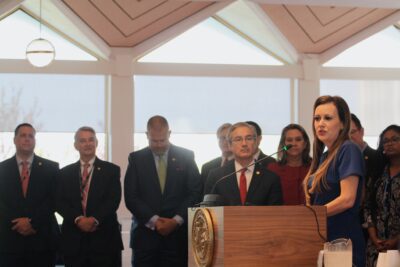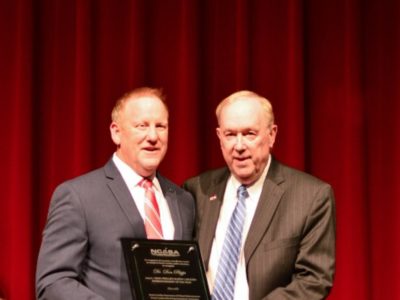
Share this story
|
|
In 54 of our 100 counties, the school district is the largest employer, and the superintendent is the CEO.
“The school superintendent is the symbolic representation of the school system,” said Scott Elliott, the former superintendent of Watauga County Schools. “That person’s ability to work within the political constructs and understand culture, human resources, and systems really shapes how the public views the schools.”
According to Jack Hoke, executive director of the North Carolina School Superintendents’ Association, 30 out of the state’s 115 school districts have new or are hiring new superintendents ahead of the 2023-24 school year — that’s 26%.
An analysis in Governing finds turnover has increased nationally 3% – from 14.2% between 2019-20 and 2020-21 to 17.1% between 2021-22 and 2022-23.
Hoke estimates that the state is losing 193 years of experience in the superintendency.
For context, ahead of the 2020-21 school year, EdNC reported that 18 districts were hiring new superintendents.
Ahead of the 2022-23 school year, EdNC reported that 22 school districts were hiring new superintendents.
The gender gap in the hiring of superintendents has been well documented. Of the districts where a superintendent has been named, eight of 17 are women.
Just four of 17 are people of color.
In my travels, incoming and outgoing superintendents talk about the 24/7 stress experienced as they serve our students and our schools. They are worried about the expansion of school choice, the impact on our communities, and the role of public education in our democracy.
“Our public schools in this nation and certainly in North Carolina are the bedrock of a democracy, of a vision for our citizens — all of our citizens — and that is a position to be respected and supported,” said Catty Moore, the retiring superintendent in the Wake County Public School System.
They are also worried about the partisan nature of school board elections, how culture wars are finding their way into our classrooms, equity and how to all serve all students better, the influence of social media on the public’s perception of our public schools, inadequate school funding, and the educator pipeline.
This survey of 12,500 K-12 public school superintendents across the country explores how the local political experiences of superintendents differ in rural, suburban, and urban districts.
Where they have been and where they are going
Robert Taylor, the incoming superintendent in the Wake County Public School System, was superintendent in Bladen County for almost 10 years, served as deputy state superintendent with the N.C. Department of Public Instruction, and then briefly served as state superintendent of education in his home state of Mississippi.
Elliott is now the director of development for the Blue Ridge Conservancy.
Jeff McDaris, former superintendent of Transylvania County Schools, is now the director of regional impact for myFutureNC.
Dale Cole was the superintendent in Clay County out west, and now he is the superintendent in Brunswick County down east.
In Martin County, local news noted that Michelle White made history as the first female superintendent in the county.
The 30 school districts in transition
Asheville City Schools hired Maggie Fehrman, effective July 17.
In the Allegheny County Schools, Chad Beasley is retiring effective Sept. 1. Melissa Weaver will serve as the interim superintendent.
Brunswick County Schools hired Dale Cole, and he was sworn in on July 6. Cole had been the superintendent in Clay County Schools since 2019. The previous superintendent, Jerry Oates, left to become a deputy state superintendent of public instruction.
Camden County Schools hired Linda Carr, effective June 1. She replaced Joe Ferrell, who resigned in January to become the superintendent of Richmond County Schools.
Doug Barker is serving as interim superintendent of Caswell County Schools.
Scott Penland is serving as interim superintendent of Clay County Schools.
Charlotte-Mecklenburg Schools hired Crystal Hill, and she started on May 19 after serving as interim superintendent.
Starting on Aug. 8, Tabitha Broadway will serve as interim superintendent of Davidson County Schools.
Valerie Bridges is retiring from the Edgecombe County Public Schools, effective Sept. 1. Bridges was the 2022 A. Craig Phillips North Carolina Superintendent of the Year.
Tracee McManus is serving as interim superintendent of Elkin City Schools.
Steve Laws is serving as the interim superintendent of Gaston County Schools.
Granville County Schools hired Stan Winborne, effective July 1.
Hickory Public Schools hired Jennifer Griffin, effective Aug. 1.
Rodney Shotwell is serving as interim superintendent of Hoke County Schools.
Chris Dossenbach is serving as interim superintendent of the Lee County Schools.
Lexington City Schools hired Nakia Hardy, effective July 1.
Macon County Schools hired Josh Lynch, effective Sept. 1.
Martin County Schools hired Michelle White, effective May 12.
McDowell County Schools hired Tracy Grit, effective July 1.
Jim Merrill will serve as interim superintendent of Orange County Schools starting on Aug. 3.
Lisa Jackson is retiring from the Pamlico County Schools, effective Sept. 1.
Sampson County Schools hired Jamie King, effective July 3.
Scotland County Schools hired Adell Baldwin, effective July 20.
Transylvania County Schools hired Lisa Fletcher, effective July 1.
The Wake County Public School System hired Robert Taylor, effective Oct. 1.
Watauga County Schools hired Leslie Alexander, effective July 1.
David White is serving as interim superintendent of the Washington County Schools.
Wayne County Schools hired Marc Whichard, effective July 1.
Wendy Carpenter is serving as interim superintendent of the Weldon City Schools.
Whiteville City Schools hired Jonathan Williams, effective Aug. 15.
Finding an expert in all things
McDaris said it isn’t enough for a superintendent to be an expert in K-12 education. They have to be well prepared, he said, in early education and higher education, and everything from social issues to economic development.
“You are preparing your students for the future,” McDaris said.
These CEOs and their leadership matters in our schools and our communities.







